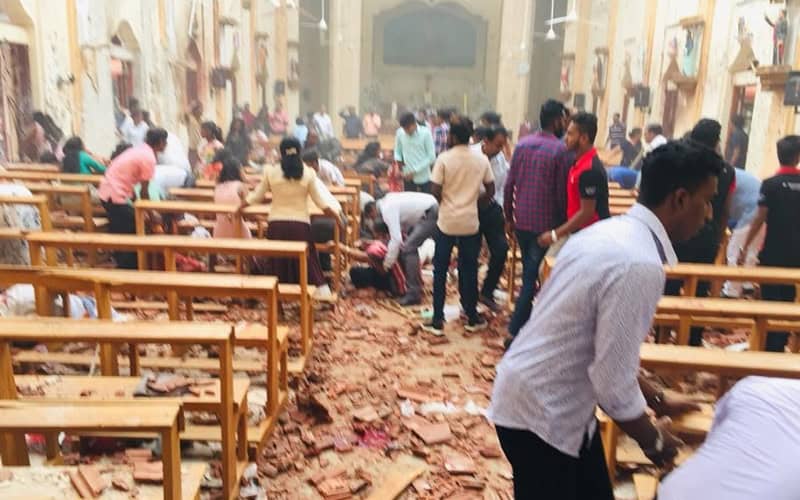Colombo: Mohamed Hasan has barely left his home in Colombo since a string of deadly blasts hit Sri Lanka on Sunday, afraid he could be attacked because he is Muslim.
He has a job at a printing press, but the 41-year-old’s family have begged him to stay home.
“They are worried that if I go out, will I be able to come back alive?” he told AFP outside the Jumma mosque in Dematagoda, where he had ventured briefly to pray.
More than 350 people were killed in the carnage unleashed by the Easter attacks against churches and hotels, which have been claimed by the Islamic State group.
The deaths have horrified Sri Lankans and been condemned by Muslim groups, but many in the community have been left feeling vulnerable.
Zareena Begum, 60, said she had barely slept since the weekend.
“I know people are angry at Muslims,” she said in tears outside the mosque. “Infants being carried in the arms of their mothers were killed.
“I never imagined such hatred being there in the hearts of these people (who attacked). Hatred must not sow more hatred.”
Wearing a black dress and white headscarf, Begum added: “We have been huddled at our homes. We are scared about going out.”
– Longstanding tensions –
Sri Lanka’s population of 21 million is a patchwork of ethnicities and religions, dominated by the Sinhalese Buddhist majority.
Muslims account for 10 percent of the population and are the second-largest minority after Hindus. Around seven percent of Sri Lankans are Christians.
Ethnic and religious tensions abound in the country, which suffered through a decades-long Tamil insurgency and more recently has seen outbreaks of sectarian violence.
Muslims have been on the receiving end of sporadic violence and hate attacks since the civil war ended in 2009.
Hardline Buddhist monks have led campaigns against the community, and in 2013 and 2018, Muslim businesses came under attack.
Rumours were even spread that Sinhalese could become sterile if they wore underwear bought from Muslim shops, and that food sold by Muslims would cause infertility.
In the wake of the attacks, Sri Lankan leaders including Prime Minister Ranil Wickremesinghe have urged calm and solidarity.
“The vast majority of Muslims condemn this and they are as angry as the Tamils and the Sinhalese about what happened,” he said Tuesday, calling for unity.
But at the Jumma mosque there was an atmosphere of anxiety, and several worshippers said they hoped police would “take care of every citizen in such critical times”.
Hilmy Ahamed, vice-president of the influential Muslim Council of Sri Lanka, said the community was braced for a backlash, with emotions running high.
“Hundreds of people are being buried (so) there is going to be an emotional outburst and some of it could be justifiable,” said Ahamed.
“We have asked the government… to ensure security is maintained. This (attack) has not been carried out by the Muslim community but by some fringe elements.”
– ‘Not your enemies’ –
In fact, Ahamed and other Muslim leaders said they had warned Sri Lankan authorities years earlier about the leader of the National Thowheeth Jama’ath, a group the government says is its key suspect in the attacks.
The group’s leader, Zahran Hashim, was well known to Muslim leaders as an extremist.
“This person was a loner and he had radicalised young people in the guise of conducting Koran classes,” Ahamed said.
Back at the mosque, R.F. Ameer said the community just wanted safety.
“We are living in constant fear because if someone sees us wearing the skull cap they will perceive us to be their enemies,” he said, his forehead creased with worry.
“But we want to tell everyone we are not your enemies. This is our homeland, it is known as the pearl of Asia. We want it to remain like that.”
[source_without_link]Agence France-Presse[/source_without_link]

